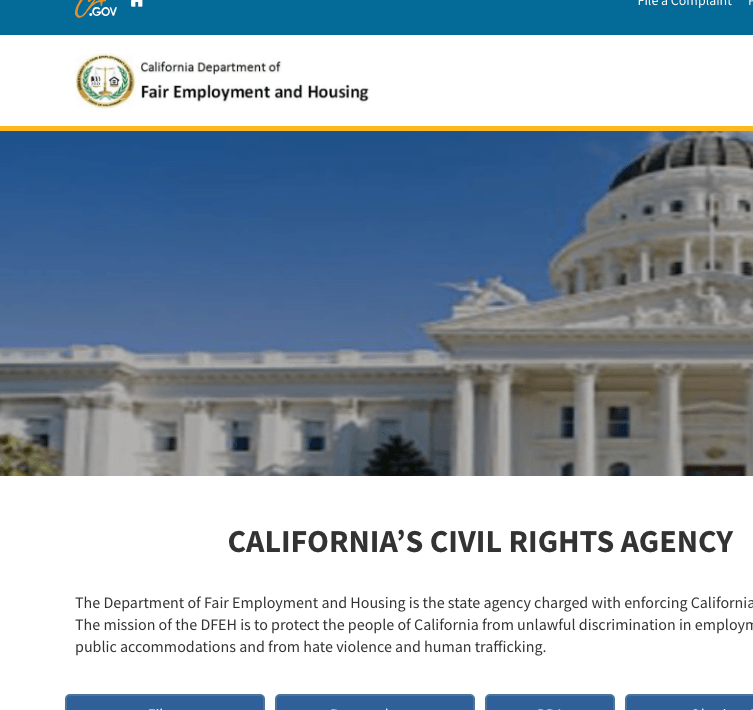New legislation for 2020 will significantly impact employers across California – ranging from a ban on mandatory arbitration agreements to a complete rewrite to the rules for the use of independent contractors to a general prohibition on “no-rehire” provisions in settlement agreements. Below are key employment bills signed into law that California employers need to become familiar with. Unless otherwise noted, each of the laws discussed below went into effect on Jan. 1, 2020.
Mandatory Arbitration Agreements and Arbitration Fees
AB 51 prohibits employers from entering into mandatory arbitration agreements for nearly all types of employment law claims in California. The law could have significant impacts on California employers across all industries—if it ever goes into effect. There are significant questions regarding the validity of AB5. On January 10, 2020, the court ruled that the TRO will remain in place until a full preliminary injunction hearing is held after the parties submit supplemental briefing. Accordingly, as of now, AB 51 has been blocked from going into effect. We will issue a further update after the preliminary injunction hearing is held and the court issues a new ruling.
Under SB 707, an employer that utilizes an arbitration agreement in the employment context that fails to pay arbitration fees and costs is subject to some fairly significant consequences, including not being able to compel the claim to arbitration and being forced to defend the case in court instead, as well potential monetary and evidentiary sanctions.
Independent-Contractor Rules
In 2018, the California Supreme Court adopted the rigid ABC test in Dynamex Operations West, Inc. v. Superior Court to determine whether a worker is an employee or an independent contractor. AB 5 solidifies the ABC test for virtually all employment purposes, it expands the test’s reach by making it potentially applicable in business-to-business relationships, and it grants exemptions to a limited number of industries. Since the law was partly intended to force gig-economy companies to treat their drivers as employees, Uber and Postmates have recently filed a lawsuit in federal court asserting that AB 5 is unconstitutional. Two groups representing freelance writers and photographers have also filed a lawsuit in federal court asserting that AB 5 unconstitutionally restricts free speech and the media.
‘No-Rehire’ Provisions in Settlement Agreements
It is very common for employers to settle threatened lawsuits with a settlement agreement that includes a “no-rehire” provision. This type of provision typically prohibits the employee from ever again applying for a job with the company and its subsidiaries and affiliates. However, under AB 749, this provision will be unenforceable. As of January 1, 2020, settlement agreements can no longer contain any provision that prohibits, prevents or otherwise restricts an employee from obtaining future employment with that employer.
Timeframe to File Workplace Discrimination, Harassment and Retaliation Claims
AB 9 extends the time an employee has to file a charge of discrimination with the Department of Fair Employment and Housing (“DFEH”) to three years. Prior to January 1, 2020, before an employee could file a lawsuit alleging claims under the Fair Employment and Housing Act (“FEHA”) he or she must have first filed a charge with the DFEH within one year from the last discriminatory, harassing or retaliatory conduct. AB 9, which amends the FEHA, extends the time employees have to file their charge to three years. This is three times as long as the original state standard and six times longer than the federal requirement. AB 9 was purportedly designed to protect #MeToo litigants, who may process incidents of sexual harassment or assault more slowly than other forms of discrimination. However, AB 9 extends not just to claims of sexual harassment, but to all claims of discrimination, harassment, and retaliation prohibited by FEHA.
Lactation Accommodation Requirements
SB 142 significantly expands lactation-room requirements under California law, including increased liability for failing to provide reasonable break time for employees to express breast milk, and adds a requirement for employers to adopt and distribute a mandatory employer lactation policy.
Paid Family Leave
Under SB 83, effective July 1, 2020 California’s Paid Family Leave wage replacement benefit will increase to eight weeks from six weeks within any twelve-month period.
Privacy Law Amendments
AB 25 amended the California Consumer Privacy Act to require businesses to provide consumers (including employees and applicants) with notices about what categories of information they collect about them and its purpose for collecting said information. These notices must be provided before or at the time of collection.
Discrimination Based on Hairstyles
The FEHA provides protections against discrimination based on certain personal characteristics, including race. SB 188 expands the definition of “race” to include “traits historically associated with race, including, but not limited to, hair texture and protective hairstyles.” The law continues to specify that “protective hairstyles” includes but is not limited to, “such hairstyles as braids, locks, and twists.” Employers will need to review their workplace grooming standards in order to ensure compliance with the law.
Anti-Harassment Training
At the height of the #MeToo movement, California enacted a requirement that all employers with five or more employees would need to provide sexual harassment prevention and correction training to all employees (not just supervisory employees) by January 1, 2020. However, in response to an uproar from the business community, the law was amended to extend the deadline for employers to provide the newly required training to January 1, 2021. So employers will have an additional year to comply with the training requirements.
Wage and Hour
AB 673 creates a private right of action for employees to recover penalties for late payment of wages through the Private Attorneys General Act (“PAGA”). Employees will have the option to either pursue a private right of action under PAGA or recover statutory penalties for the same violation – but not both. AB 673 also removes the authority from the Labor Commissioner to recover penalties in an independent action.
Under SB 688, the California Labor Commissioner can now order restitution if an employer is found to pay less than the contract wage (even if in excess of minimum wage). Previously, the California Labor Commissioner could only seek wages for less than minimum wage violations and overtime.



